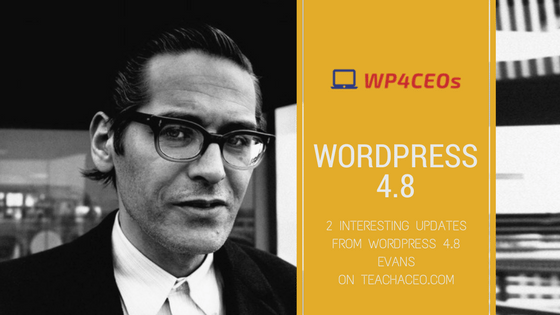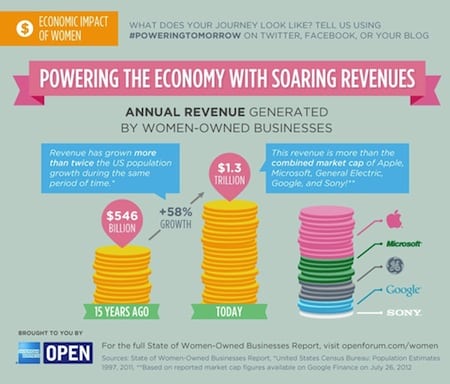As the CEO of a company you have a lot of riding on your shoulders. You are ultimately the one person responsible for everything your company does. I thought it would be interesting to look at the job description of a CEO on Wikipedia:
Typically, the CEO has responsibilities as a communicator, decision maker, leader, manager and executor. The communicator role can involve the press and the rest of the outside world, as well as the organization's management and employees; the decision-making role involves high-level decisions about policy and strategy. As a leader, the CEO advises the board of directors, motivates employees, and drives change within the organization. As a manager, the CEO presides over the organization's day-to-day, month-to-month, and year-to-year operations.
With a job description this wide and all-encompassing it's amazing that all CEO’s don’t get ulcers and live on Prozac. And the sad truth is that many of us are probably toeing the line with too much stress and responsibility. But the key to being a great CEO is that we love it. We can’t imagine being in any other position.
But how do you get through every day, week, month and year without the ulcers and sleepless nights and with the knowledge that you are managing your company to the best of your ability? As the CEO, there are several things that I live and die by that make my life easier, happier, less stressful and allow me to sleep better at night.
So here is how I sleep better at night as a CEO:
Planning
I create financial forecasts and budgets for every fiscal year. I get my executive team to contribute and buy into the forecasts and the expense budget. We use the previous fiscal year as a base, and then adjust for growth and what we know. I create a forecast that then helps me budget expenses. Your organization may need 2 forecasts: one as reach goals for a sales team, and one for your purposes to use to budget expenses. You don’t want to use the “reach” sales forecast that motivates sales people to budget your expenses, you want to use a conservative forecast so that you make sure you always reach it or blow it out of the water, and can afford to spend what is in your expense budget
Review
I review our budget and expenses every week. Everyone in our company is invited to a weekly meeting that goes over sales in relation to our forecast, and compares them to the same week the previous year. I also review our monthly forecast and expenses vs. actual results the 2nd Thursday of every month. Every time I review the numbers, it makes me sleep better regardless of the results. By reviewing the numbers and engaging my management team whether the numbers are good or bad, we all know what we need to do. I am happy to say that the last few years we have consistently beat our numbers.
Adjust
If the landscape we are in has changed enough, we will make adjustments to our future forecast, in order to make sure we continue to budget our expenses appropriately. That being said, we rarely change our forecast more than 2 times per year. My goal is always to beat the forecast and spend less. By having a baseline to manage to it helps me know exactly where we are, and where we need to go.
Daily Monitoring
There are some financial indicators that I can't help but track daily:
- Direct Sales
- SaaS signups
- Cash in the bank
Knowing these numbers on a daily basis gives me peace of mind. I know the numbers so well that I can tell you based on the day of week, time of the month, and season we are in whether the numbers are good or bad. It can also alert me if something is wrong. If our SaaS sign-ups are way down, I can make sure there is nothing wrong with our application. If the direct sales numbers are down I can make sure our ecommerce engine is on track. I have been one of the first to know when we have had disruption from Amazon Web Services (who runs most of our network) because I track these numbers so closely.
Project Management Tools
As the CEO, I am responsible for everything. It makes me nervous not to know what is going on across all projects, but I also need to let my managers lead, and my employees do their thing. I believe in autonomy and hiring people who know what they are doing. But I still want to be able to understand what is going on and where we are. So we use some great web based tools to help me and my management team stay in touch without having to micro-manage:
- Basecamp from 37 Signals houses all of our marketing and web development projects. I can login and understand exactly where we are on any project, within minutes.
- We never, ever email docs around internally to each other. Anything that isn’t in Basecamp because it is a PDF or an image lives in Google Docs. I can see who has created what, and when. I can comment or give feedback when asked, without having to make sure I have the latest version.
- Jira- My VP of Product Development uses this to track feature development and bugs for the app development team. I actually don’t log into Jira, but get lists of what is happening on a regular basis from my VP.
I would love to know how other CEO’s manage and if there are tools that they use to help them get the job done. I find that the best part of my job is that because my hands are in everything I learn new things every day. I am constantly striving to do a better job, and finding the right tools to help me is always top of mind.

Sabrina Parsons is CEO of Palo Alto Software, developer of the best-selling business planning software, Business Plan Pro. Sabrina assumed the CEO role in May 2007 and is responsible for Palo Alto's business planning, fiscal and strategic goals and all of the company's traditional marketing.
Image: FreeDigitalPhotos.net










































 |
|
Comments 1